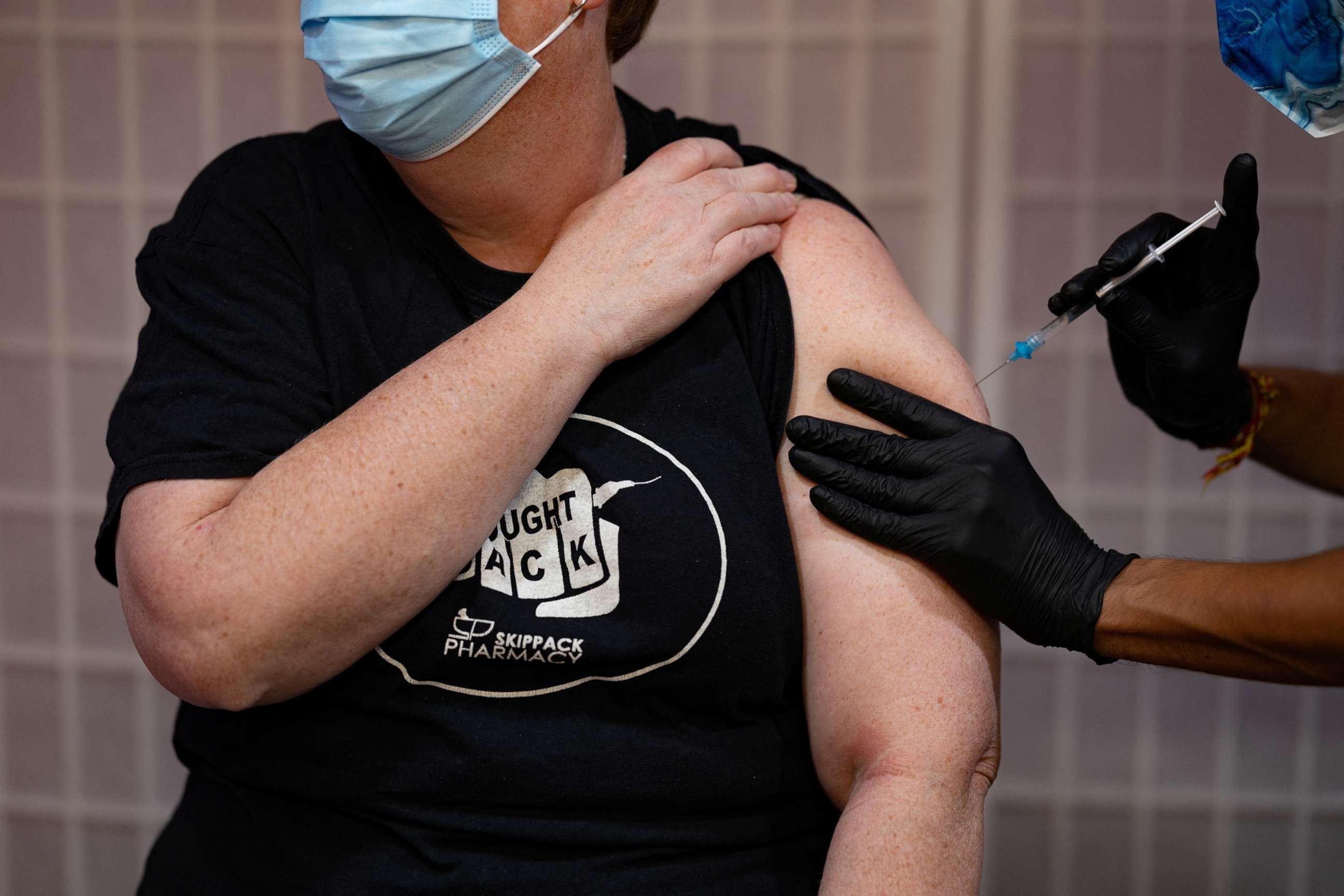4.4 million Americans have received an updated bivalent COVID-19 booster
In recent months, vaccination and booster uptake have slowed significantly.
At least 4.4 million Americans have received an updated bivalent COVID-19 booster since the shots were rolled out at the beginning of September, newly released data from the Centers for Disease Control and Prevention shows.
Nationally, a total of 109 million Americans have received their first booster dose — representing less than 50% of those who have been fully vaccinated. Just over a third — 35% — of the total U.S. population over the age of 5 has received their first booster.
In recent months, vaccination and booster uptake have slowed significantly, with fewer Americans willing to get their shots as pandemic and vaccination fatigue set in.

Following the federal green light of the new COVID-19 booster shots, data shows there was a significant uptick in the number of Americans getting vaccinated.
On average, approximately 390,000 shots are going into arms each day across the country.
On Thursday, CDC Director Dr. Rochelle Walensky became the latest American to get the new bivalent COVID-19 booster shot.
Walensky urged others to join her in getting the vaccine, stressing that it is important to get vaccinated now, ahead of the fall and winter, in order to prevent severe disease.
"I'm here getting my updated fall vaccine because I think it's critically important to do," Walensky told ABC News. "We are really encouraging everybody to roll up their sleeves and get this updated bivalent vaccine."
On Thursday, Moderna also announced that it has submitted an emergency use authorization request to the Food and Drug Administration (FDA) for the use of the company's omicron-targeting bivalent COVID-19 vaccine in children and adolescents.
The company has completed submission of its EUA requests in adolescents ages 12 to 17 years old as well as in children ages 6 to 11 years old.
The application for the youngest Americans, ages 6 months to under 6, is expected to be completed later this year, according to the company.
At this time, children over the age of 12 are eligible to receive Pfizer's bivalent booster and adult Americans can receive an updated booster at least two months after their last shot.
Pfizer is expected to submit a request to add authorization for children ages 5 to 11 to its offerings of bivalent boosters by the end of month.
The FDA could authorize the updated booster shots for people as young as 5 in the coming weeks and the Centers for Disease Control and Prevention may recommend them for the younger age groups shortly after.




